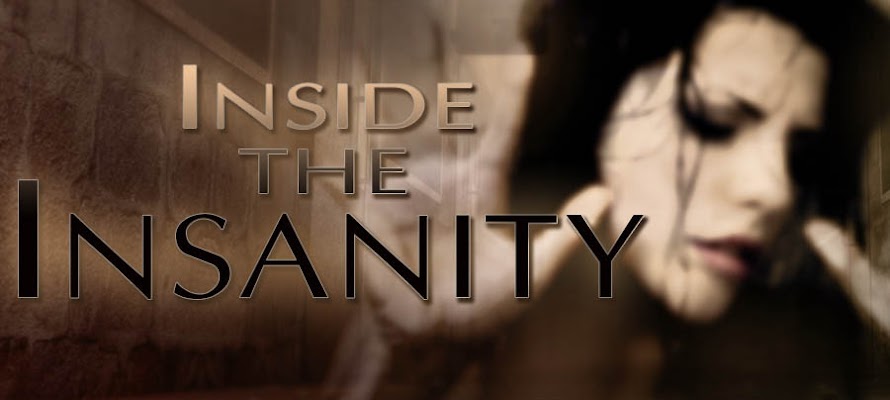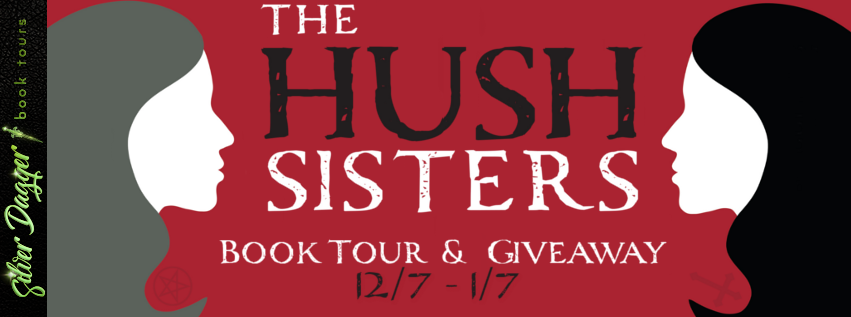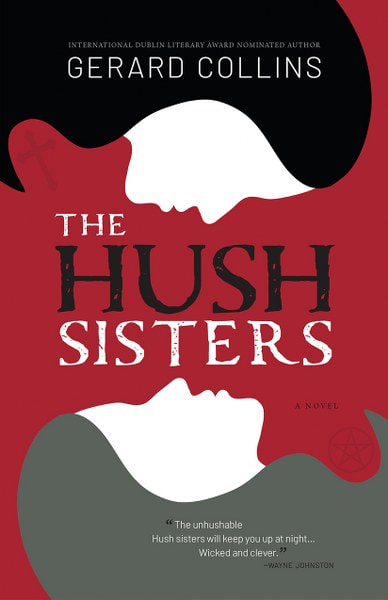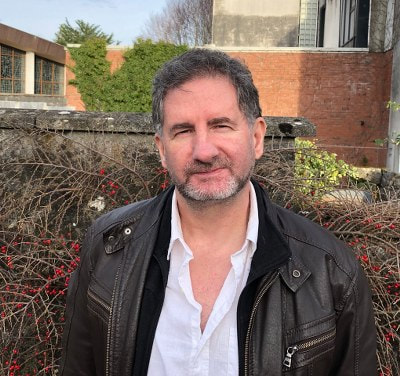What are your top 10 favorite books/authors?
My favourite books, in no particular order are:
The Shining by Stephen King
Bird By Bird by Ann Lamott
The Haunting of Hill House by Shirley Jackson
The World According to Garp by John Irving
The Grapes of Wrath by John Steinbeck
The Ocean at the End of the Lane by Neil Gaiman
Frankenstein by Mary Shelley
The Robber Bride by Margaret Atwood
Beloved by Toni Morrison
Dubliners by James Joyce
What book do you think everyone should read?
I rarely use the word “should,” and I’m not particularly fond of lists that tell other people what they ought to read to the exclusion of others. My books have been on some lists, which I appreciate, and it’s always a nice feeling to be included. But there are tens of thousands, even hundreds of thousands, of great books out there, and a list of books telling people what to read just seem wrong. That said, I can highly recommend Station Eleven by Emily St. John Mandel and The Lion, the Witch, and the Wardrobe by C.S. Lewis, or even the Lord of the Rings books, but that’s only a starting point. 1984 and Animal Farm come to mind. Mrs. Dalloway by Virginia Woolf, The Awakening by Kate Chopin, and definitely Mary Shelley’s Frankenstein. The English Patient by Michael Ondaatje, and Baltimore’s Mansion by Wayne Johnston, On Writing by Stephen King, and anything by Russell Wangersky. These are all arbitrary choices, though, and tomorrow I might choose another bunch of great books that are great in my mind, but lots of people would disagree. I think the thing is to just read whatever draws you in and keeps you in.
How long have you been writing?
I dabbled in writing when I was in grade school. Won a poetry contest when I was in Grade 8, so that’s possibly when the bug bit me, but I was probably writing long before then. You don’t just see a call for submissions and think for the very first time “I think I could win that prize,” not unless you’ve already been fancying yourself as a writer. I didn’t get half-serious about it until I was in university, and then got really serious about it when I moved to Oakville, Ontario for a while in the early 1990s and wrote my first novel – a 900-page tome about a redhaired girl in New York who was literally the reincarnation of Jesus. I knew it would never publish because it was too long, but I loved the daily process of working towards something that even I didn’t know how it was going to end. I’ve never really stopped writing since then, and I don’t ever envision a time when I’ll stop. I’ve always got several new manuscripts on the go at once.
Do the characters all come to you at the same time or do some of them come to you as you write?
I never start writing until I know a fair bit about the main character, but the rest of them come to me as I write. I like to be surprised – I always figured that if I’m surprised or entertained, there’s a better chance the reader will be, as well. I like getting to know the world of the protagonist one person at a time. That’s why, for instance, I had to write those Toronto scenes that showed Ava’s life there because, unless I’d written them, I wouldn’t have known the details of who was there and what had happened to her there during those years and recent months. I might have generalized, I’m sure, but it’s different when you know specifically, including names, faces, and the way they smile, speak, walk, eat, and have sex. In that way, I’d say no writing is wasted, and you never know which characters will stick around for good. Cotton Hush was one of those who was kept at bay for a while because the sisters rather feared him, but he revealed himself to be loved and loveable, and capable of carrying a scene or two.
What kind of research do you do before you begin writing a book?
I just start writing and then discover how much research I need to do as I go. Sometimes, I discover almost immediately that I need to know more about a subject before I can fully immerse myself into writing about it. So, I’ll take some time for that – whether it’s a simple online search or going to a particular place or asking questions to the right person. My newest novel that I really haven’t begun writing is The White Wolf of Inis Mor. I’m finding that I need a lot of research before I start that one, even though I’ve been to Inis Mor and to Ireland multiple times. But I haven’t been there in the eighteenth century, so even though my imagination can carry me a long way, specific details are the fairy dust that get me there. Most times, though, I find that it’s best for me to just put my head down and write, or to go for long walks or whatever, or listen to music, and think about it. I don’t like to get too bogged down before I’ve even begun. For some people, research is fun. It’s fun for me, too, so I’d rather not expend all that fun at the beginning and then find myself with too much information and no idea where to start. I’d rather write and find out what I don’t know, as well as what I know, and then I’ll know how much research I need to do and how much is just giving myself permission to fall down a rabbit hole and not write. Lots of things are related to writing and are a part of the writing process, but only writing is writing.
Do you see writing as a career?
Absolutely. But it’s more than that, as well. It’s a lifestyle, a philosophy, a way of seeing the world and comporting myself. It’s not just a way to make a living; it’s what I am every minute of every day, and I wouldn’t change it for anything. Writing has taken a lot from me (you can read that sentence two different ways), but it’s also given me far more than it’s taken. A million times more.
What do you think about the current publishing market?
I’ve loved both my publishers. Breakwater Books is superb in every way. My previous publisher, too, was excellent, but the two-person operation was so small that it was limited in terms of distribution and promotion. Breakwater is slightly bigger and has been fantastic to work with at every stage, including my conversations with the president and owner, Rebecca Rose. At every level, from promotions and marketing, to distribution and cover art, copyediting, and every other level of editing, I’ve been very impressed, and I wish every writer could have this experience of feeling like so many professional people care about your book and just want the best for you and your book. I constantly get notes from people telling me how well-edited the book is, how good the writing is, how great the cover art is, and how lovely the people at Breakwater are to work with, either as a reader or as a bookseller or author.
I think it’s crucial that traditional publishers remain the bedrock of the industry because that’s how we have standards, and that’s how the book industry will survive as a meaningful entity for decades to come. The general erosion of standards is hurting the industry, at least from my perspective as an author and teacher of literature. It’s not enough to say that every book is a good book. Some books just aren’t well-written or well-edited and, for that, we need gatekeepers, and that begins with traditional publishers who make their living from selling good books but also occasionally, unfortunately, taking a hit on good books that don’t sell very well.
We’ve become quite Giller-centric in our thinking in Canada and, in that way, perhaps the U.S. is a bit better off because it comes down to great storytelling and, let’s face it, great promotion and marketing, rather than, “Will this book win any awards?” or “Can the author afford to pay me to publish it?” Self-publishing is here to stay, and it’s produced some good books and success stories, but it can’t be the standard on which we hang the future of good writing. If the only standard is whether you have the money to pay for publication, then we’ll find that we miss traditional publishing greatly.
On a final note, I have to say I’m terrified by the trend towards monoliths in publishing – big, faceless, bullish publishing houses that have eaten other large publishing houses for breakfast and can have their way with the entire scene. The trend towards monopoly means lack of competition, which is troubling for smaller publishing houses and authors alike, for a lot of reasons, not the least of which the ability to publish literature of an artistic, rather than purely commercial, bent. I don’t have any problem with commercial literature – my own work has some commercial appeal, I’m sure – but a strong culture needs variety. These behemoths are like Walmart who come in and undercut the smaller mom-and-pop stores that were once the mainstay on Main Street, then, once those smaller stores have been pushed out of business, the monopolists find they can do whatever they want at whatever price they insist upon. Art never wins when capitalists run amuck.
Do you read yourself and if so what is your favorite genre?
I’m a huge fan of classic literature, and I don’t confine myself to my own genre, which is literary but with a strong bent towards darkness, or so-called “gothic” or “neo-gothic”. I love poetry and even write some of my own which I’ve never attempted to publish. Novels and short stories are my favourite, though, and as long as it’s riveting, authentic, with gorgeous language, and strong characters, I’m in. I’ve read in just about every genre, and I’ve loved books from every genre, including horror, sci-fi, fantasy, young adult, romance, mystery, and literary. I’m less a fan of some than others, but that’s purely a matter of taste. All that said, a new King, Gaiman, or Atwood, or something with a tinge of dark humour, will always set me up for an evening or two. It doesn’t have to be gothic, but it should at least be realistic and, to me, real life always runs the gamut from dark to light; I don’t really like to have all of one without any of the other.
Do you prefer to write in silence or with noise? Why?
When I’m at home, I prefer silence, so I shut myself away to write when there are people at home. But I do a lot of writing at coffee shops and pubs, so it’s a certain kind of ambient noise, with a certain level and genre of music that will get me into the zone and keep me there. At home, I can play music without lyrics (soundtracks like The Others, Lord of the Rings, Braveheart, and even some classical music) and it will sustain me. But, most times, I might play a few songs off my personal soundtrack that I always develop before I get too far in to the writing (each character has their own song or two, for example), but I can’t write while the music is playing. Unless it’s voiceless, I find that it’s at least one too many voices inside my head for creative thought to flourish.
Do you write one book at a time or do you have several going at a time?
I always seem to be writing more than one book at once. Now that The Hush Sisters is out, I’m working on two others but also have a screenplay and another new book percolating. With my first two books, I’d begun Finton Moon first, but then wrote Moonlight Sketches (a short story collection) and published it before I’d finished the novel. I wrote them both at pretty much the same time, though.
If you could have been the author of any book ever written, which book would you choose?
I could easily have written The Ocean at the End of the Lane or The Shining, though obviously different than Gaiman or King wrote them, but with enough similarities that I can relate to. If I had to choose only one that I would want to have written, I’d still have to choose both of those. And I’d add The World According to Garp to that list. I wish I could write something like The Handmaid’s Tale, and I probably will – but only something “like” it. Partly because there’s only one Margaret Atwood. In the end, I think, I’ve never read anything that feels beyond my ability, but only beyond my relative experience and perspective as a white male – though one, I will add, who always felt as if he was born in captivity.
Pen or type writer or computer?
My first novel manuscript, called No Third Day, was over 900 pages long and took a couple of years to write, sometimes up to nearly 70 pages in a day. In the early stages, I wrote in pen. Then I progressed to a manual typewriter, then to an electric typewriter, and then to a laptop with no memory, and then to an actual computer that used floppy disks. That entire 900 pages had to be typed onto a computer, ultimately. While I love the feel of writing with a pen and have written entire scenes on paper in recent years, my Macbook is by far easier and more satisfying than almost anything I’ve ever used. I love the aesthetic of the typewriter, but I wouldn’t want to use one again for writing manuscripts. I’ve had enough of that – mistakes are painful and expensive, and so you’re sometimes stuck with what you’ve written. That said, I used to rewrite entire pages because of errors in grammar, language, or thought. I love a good pen, but the computer is my weapon of choice, most days.






No comments:
Post a Comment